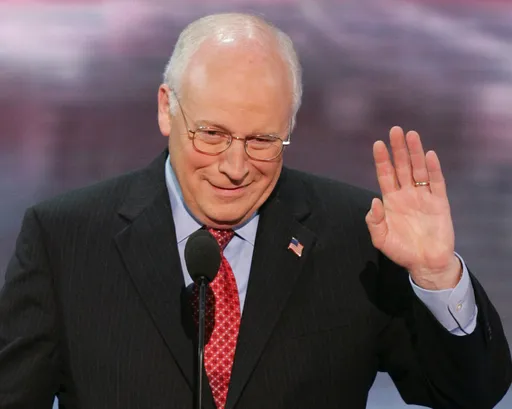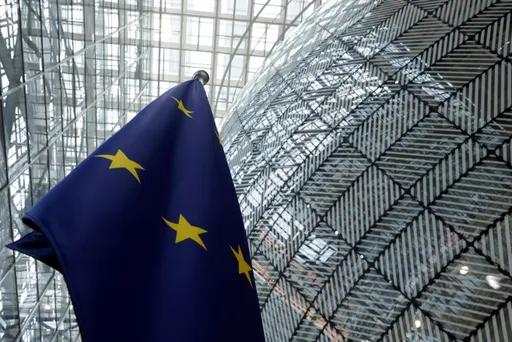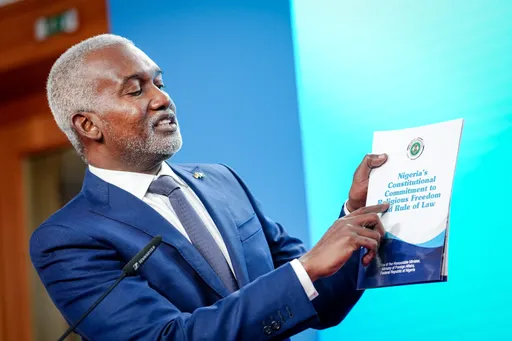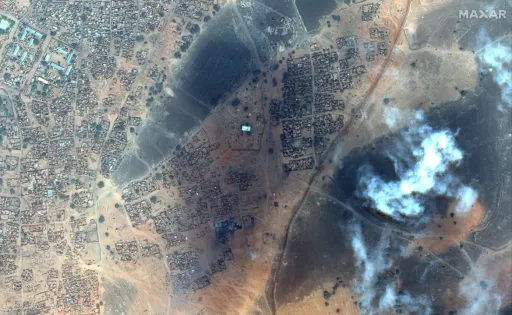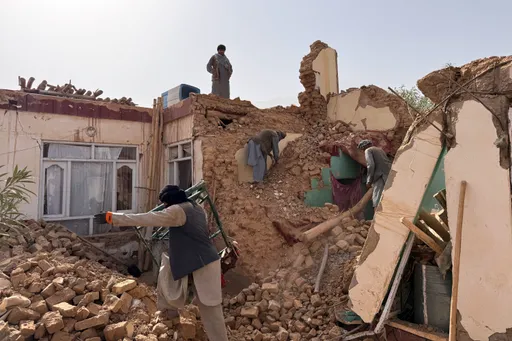The Biden administration has decided it will not renew a waiver that allowed a politically connected US oil company to operate in northeast Syria under President Donald Trump's pledge to “keep the oil” produced in the region, according to a US official familiar with the decision.
Treasury Department rules prohibit most US companies from doing business in Syria. The waiver for Delta Crescent Energy was issued in April 2020, months after Trump announced that he wanted to keep some US troops in the oil-rich region to maintain control of the oil profits.
Trump's “keep the oil” message was no longer US foreign policy under the Biden administration, and using the US military to facilitate Syrian oil production was deemed inappropriate, according to the official, who was not authorised to publicly discuss the decision and spoke on condition of anonymity.
The company was founded in 2019 by James Cain, US ambassador to Denmark under President George W. Bush; James Reese, a retired Army Delta Force officer; and John Dorrier Jr., a former executive with United Kingdom-based Gulfsands Petroleum. Cain, a onetime executive with the NHL’s Carolina Hurricanes, has donated more than $30,000 to the Republican Party and GOP candidates over the years.
Northeastern Syria is the centre for what remains of Syria’s oil industry. It is in shambles but remains one of the main sources of revenues for the YPG, the Syrian affiliate of the PKK, a designated terror group in the US, EU and Turkey.
Trump repeatedly spoke of keeping some US troops in Syria to help “keep the oil" and “secure the oil," but his aides sought to dispel the idea the United States was trying to profit from the region's oil reserves. After DCE's licence, from the Office of Foreign Assets Control, to operate became public last August, the State Department issued a statement in which it underscored that the “United States government does not own, control, or manage the oil resources in Syria."
Trump's comments about Syria's oil frustrated critics, and some allies, who said the loose talk fed into the narrative that American policy in the Middle East was driven by US energy concerns and they argued it undercut US diplomatic efforts to press for peace and stability in the region.
READ MORE: US should end support to YPG/PKK terror group – Turkey
Remarkable policy change
"If the Biden Administration chooses not to renew the OFAC license, it will be a substantial change in policy that does not support Coalition Allies who fought and died to eliminate ISIS (also called as Daesh),” Dorrier said in a statement, using an acronym to refer to the Treasury Department’s Office of Foreign Assets Control, which manages the license.
“Depriving our Allies of the opportunity for sanctions relief on critical infrastructure as laid out by the Obama administration would, in effect, turn the North and East of Syria over to Russian, Regime and Iranian forces,” he added.
The White House press office declined to comment about the decision, stating that as “a general matter” it does not comment on specific licences, including to confirm whether one exists.
The news site Al Monitor was the first to report the administration's decision to end the waiver.
DCE said it has not received word from the Treasury Department that the licence, which was set to expire at the end of April, will not be renewed. The department typically gives companies additional time to wind down operations, according to the US official.
A former US official familiar with the discussions said the administration has been communicating that it does not intend to renew the waiver but had not taken final action yet. This person was not authorised to publicly discuss the matter and spoke on condition of anonymity.
The Treasury Department did not respond to a request for comment.
The US decision to allow an American company to refine and market oil was denounced by Syrian regime of Bashar al Assad and ally Russia after it became public last August.
READ MORE: How can the YPG wedge be removed from the US-Turkey relationship?
"I like oil. We’re keeping the oil"
Trump became focused on northeastern Syria’s oil in October 2019 after he abruptly announced his intention to draw down US troops deployed against Daesh terror group in the area.
At the time, Turkey’s president, Recep Tayyip Erdogan, had been pressing Trump to withdraw troops from the region.
But when advisers floated the idea of keeping some troops in northeastern Syria to guard oil fields, it resonated with Trump. It also presented US military commanders – wary of entirely leaving the area – with a way to keep some troops in place.
The area controlled by the YPG terror group shrunk after Turkey's anti-terror operation in northeast Syria in October 2019.
Then-Defence Secretary Mark Esper said at the time that the main goal of the American troop presence was to make sure the Deash was contained and unable to gain control of the oil fields and the revenue they generated.
The administration also saw some benefit to YPG terror group being in control of the oil.
Still, Trump repeatedly said in remarks to reporters and on his Twitter account that US troops were staying in Syria to keep and protect northeast Syria’s deep oil reserves.
“We stayed back and kept the oil,” Trump told reporters in November 2019. “Other people can patrol the border of Syria ... and Turkey. Let them. They’ve been fighting for a thousand years."
"Let them do the border. We don’t want to do that. We want to bring our soldiers home. But we did leave soldiers because we’re keeping the oil. I like oil. We’re keeping the oil.”
READ MORE: Did UN aid to Syria end up in the hands of the YPG/PKK terror group?










